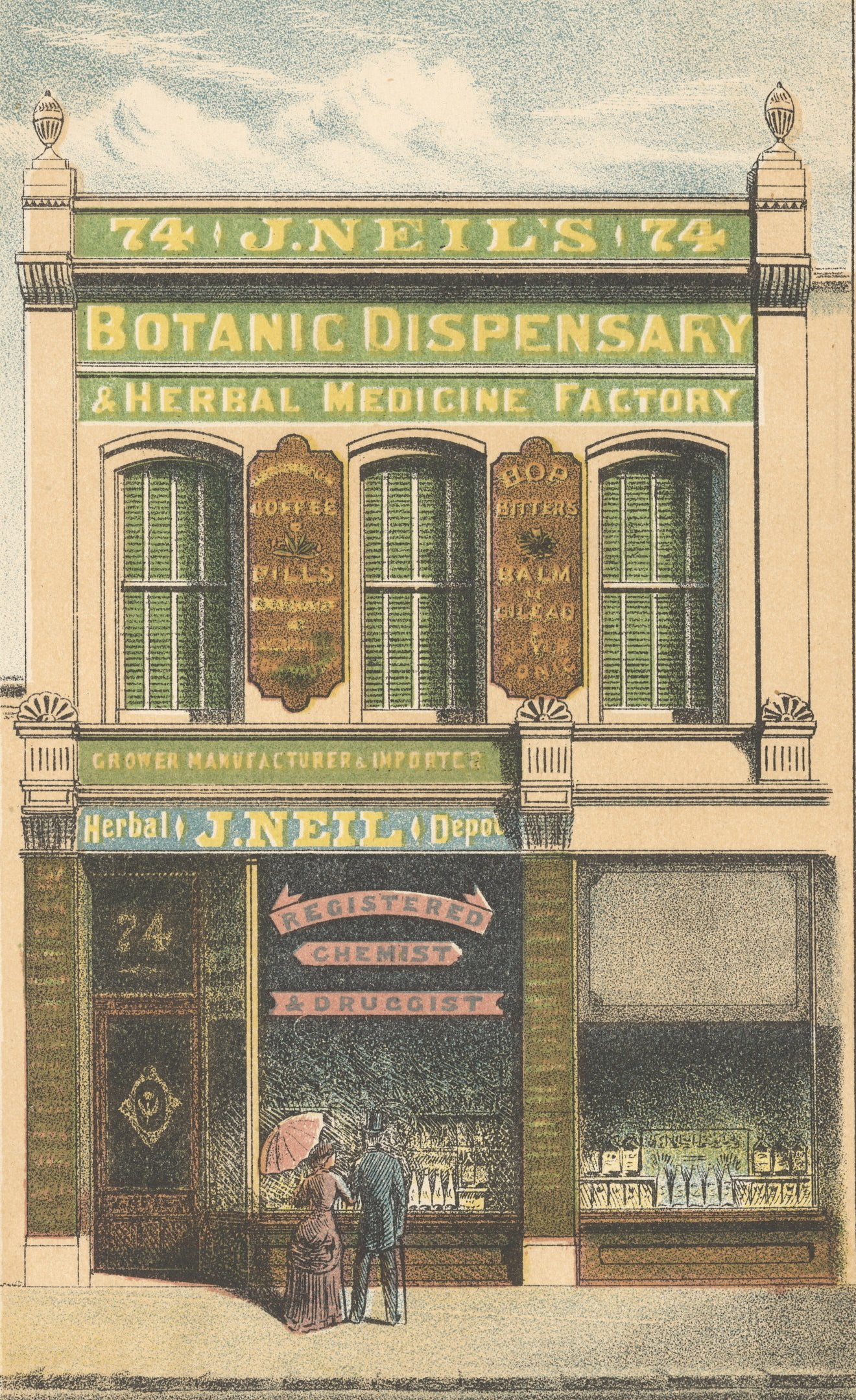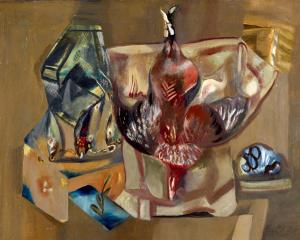Dunedin was once the wild west of questionable remedies, Hannah Renwick writes.
For centuries wellness practitioners have offered cures in a bottle for every ailment. Dunedin people proved just as susceptible to these promises, as evidenced by the lucrative business in natural remedies by one local herbalist from the late 19th century.

The wares of James Fulton Neil (1843-1914) feature prominently in a book of 285 product labels held in the Ephemera Collection at Hocken Collections (Eph-0179-HD-A) that are provisionally dated 1900s-1930s.
Of these labels, 132 advertise his product range, including herbal tonics, wines, pills and powders. Printed in vibrant colours and branded with trademark logos, these labels give insight into product marketing and the state of domestic life and health in New Zealand during the early 20th century.
Neil’s first establishment opened in 1876 on George St, Dunedin, offering medicinal herbs and free advice to all. During this period in New Zealand healthcare choices were limited, working conditions were hazardous and illnesses spread easily.

In 1881, Neil exhibited Dandelion Coffee at a local industrial exhibition and judges were ‘‘... surprised by its palatable taste’’. Demand became so great that Neil ran newspaper advertisements offering to buy dandelion roots from local gardeners. Eventually, he was able to source a sufficient supply from Otago Peninsula growers.
Today, olive oil is found in most homes as an everyday kitchen condiment, but in the early 20th century it was administered as a medicine to treat digestive disorders under the Lighthouse Brand.
Trademarked and patented by Neil in 1912, this brand was distributed by the National Drug Company, suggesting that Neil wanted to diversify his brand towards an ostensibly more trustworthy pharmaceutical product.
In the 1920s Dunedin imported more than a third of the country’s olive oil. French olive oil was the most expensive on the market costing almost a pound per gallon, equal today to $122 dollars per gallon.
With some medical training in the United States, it’s not surprising that Neil was influenced by American herbalist therapies and ‘‘Celerina The Great American Remedy’’ was a widely dispensed and popular nerve tonic. Celerina’s main ingredient was extract of celery, but its popularity may have had more to do with its other main ingredient, cocaine in the form of coca and kola.
The introduction of the Department of Health and the Public Health Act 1900 led to stricter regulations of patented medicines. By 1904 all patented medicines imported and sold were required to disclose their contents on the label.
Celerina was included in this list as it was highly addictive, and cocaine was listed as a poison. Despite this, importers and dispensers disregarded regulations for some time yet.
• Hannah Renwick is a general assistant at Hocken Collections Uare Taoka o Hākena
More labels
• The labels for other businesses in this notebook include products relating to food, beauty, sports, leisure and domestic life. They have been digitised and are available to view online at hocken.recollect.co.nz/ nodes/view/69060
• To view in-person, visit the Hocken Tuesday-Saturday, 10am-5pm. Free public tours Thursdays at 11am.


![‘‘Neil’s Dandelion Coffee’’. [1910s-1930s?]. EPH-0179-HD-A/167, EPHEMERA COLLECTION, HOCKEN...](https://www.odt.co.nz/sites/default/files/styles/odt_story_slideshow/public/slideshow/node-3436487/2025/09/neils_dandelion_coffee.jpg?itok=TxMeLv1n)
!["Celerina’’. [1910s-1930s?]. EPH-0179-HD-A/103, EPHEMERA COLLECTION, HOCKEN COLLECTIONS, UARE...](https://www.odt.co.nz/sites/default/files/styles/odt_story_slideshow/public/slideshow/node-3436487/2025/09/celerina.jpg?itok=aK5_RDnm)
![‘‘Lighthouse Brand Finest Olive Oil’’. [1910s-1930s?]. EPH-0179-HD-A/052, EPHEMERA COLLECTION](https://www.odt.co.nz/sites/default/files/styles/odt_story_slideshow/public/slideshow/node-3436487/2025/09/finest_olive_oil.jpg?itok=7fVcat9n)











